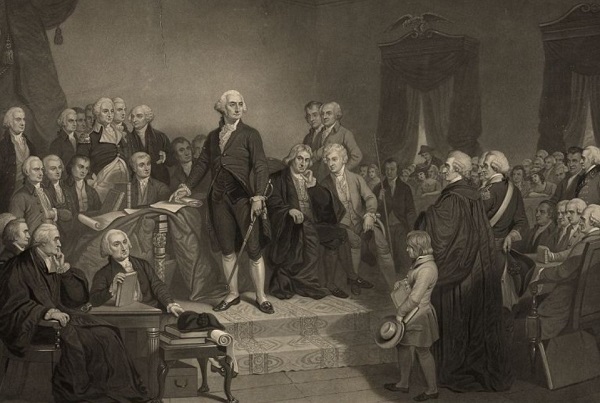Uncategorized
Long, tortured road to Trump’s answers for special counsel

WASHINGTON — The date had been picked, the location too, and the plan was penciled in: President Donald Trump would be whisked from the White House to Camp David on a quiet winter Saturday to answer questions from special counsel Robert Mueller’s team.
But as the Jan. 27, 2018, date neared and Mueller provided the topics he wanted to discuss, Trump’s lawyers balked. Attorney John Dowd then fired off a searing letter disputing Mueller’s authority to question the president. The interview was off.
Nearly a year later, Trump has still not spoken directly to Mueller’s team — and may never. Through private letters, tense meetings and considerable public posturing, the president’s lawyers have engaged in a tangled, tortured back-and-forth with the special counsel to prevent the president from sitting down for a face-to-face with enormous political and legal consequences.
The prolonged negotiation speaks to the high stakes for Trump, Mueller’s investigation of his campaign and the presidency. Any questioning of a president in a criminal investigation tests the limit of executive authority. Putting this president on the record also tests his ability to stick to the facts and risks a
The process took a significant step forward this week when Trump’s lawyers handed over the president’s written answers to some of Mueller’s questions. The arrangement was a hard-fought compromise. Trump answered only questions about Russian interference in the 2016 election and not questions about whether he has tried to obstruct the broader investigation into potential
Special counsel spokesman Peter Carr declined comment.
Even those written answers were months in the making.
In the months following Mueller’s May 2017 appointment, the White House pledged its
But it soon became clear that Mueller would want to interview Trump, given his involvement in several events under scrutiny. The president had fired FBI Director James Comey, harangued his attorney general over his recusal from the Russia investigation and dictated a misleading statement about a Trump Tower meeting involving his son and a Kremlin-connected lawyer.
But Trump lawyers Dowd and Jay Sekulow moved cautiously.
The last time a president is known to have been interviewed in a criminal investigation was nearly 15 years ago, and a commander-in-chief has not been subpoenaed before a grand jury since 1998, when President Bill Clinton was summoned in the Whitewater case. Trump’s lawyers were mindful such an interview would be a minefield for a president who often misstates the facts. They set out to avoid it however possible, even if it could lead to resisting a subpoena and bringing on a court fight over presidential power.
But first they tried to head off a request. Trump’s lawyers staked out a bold
At the same time, they worked to undermine Mueller’s case should he choose to challenge that argument. They furnished a trove of White House documents about key moments in the investigation in hopes of undercutting any claim that he could only get the information he needed by questioning Trump, according to people familiar with the strategy.
Trump had other plans.
As his lawyers plotted to dig in against any interview, he pushed for one, believing it would exonerate him. In January, he burst into a reporters’ briefing with chief of staff John Kelly and insisted he was eager to speak to Mueller. He might do so in weeks, he said, “subject to my lawyers and all of that.”
“I would love to do that — I’d like to do it as soon as possible,” Trump said.
What he didn’t mention was that his attorneys had already discussed, and scuttled, the planned interview with Mueller. That process had even progressed to discussing logistics with Kelly, who advised of ways White House officials could get people in and out of the building without the press knowing.
But the interest cooled after Mueller team prosecutor James Quarles dictated over the phone 16 topics Mueller wanted to cover, including Trump’s interactions with Comey, his knowledge of national security adviser Michael Flynn’s interview with the FBI and his involvement in the Trump Tower statement. Dowd responded that the answers could all be found in documents and witness statements provided to Mueller. He then
The investigation has been “a considerable burden for the president and his office, has endangered the safety and security of our country, and has interfered with the president’s ability to both govern domestically and conduct foreign affairs,” Dowd wrote.
In the following months, Trump told some of his closest confidants that he still wanted to interview with Mueller, according to four White House officials and Republicans close to the White House who asked for anonymity because they were not permitted to publicly discuss private conversations. The president repeatedly insisted he had done nothing wrong and believed he could convince Mueller of that.
He told one confidant last spring he was frustrated his lawyers didn’t believe he should do it and snapped that he didn’t understand what was taking so long, according to one Republican in contact with the White House.
Tensions were on display at a March meeting where Dowd and Sekulow met with Mueller to discuss the need for an interview. Mueller said he needed to know if Trump had a “corrupt intent” when he fired Comey, such as by intending to stymie the investigation, according to a person familiar with the encounter. Dowd responded that the question was ridiculous and the answer was obviously no. Investigators at the same meeting raised the prospect of a subpoena if Trump didn’t
Later that month, Mueller’s team produced its most detailed list of questions yet — dozens, in different categories from Trump’s time as a candidate, through the transition period and into his presidency.
Trump’s own views soon began to shift. He had his first misgivings in mid-April after FBI raids on his personal lawyer Michael Cohen, thinking they were a sign that he could “not trust” Mueller, according to one of the Republicans close to Trump who spoke with the AP.
As Rudy Giuliani joined Trump’s legal team in April, the White House settled into a new strategy: Drag out the interview drama for months, and use that time to ratchet up attacks on Mueller’s credibility and complaints about the cost and time of the probe, according to the officials and advisers familiar with the strategy.
Giuliani led the charge. His scattershot arguments sometimes frustrated others in the White House, as he frequently moved the goalposts as to what would be required to have an interview. But the effect was to ensure the process would drag out longer.
Trump, meanwhile, continued complaining about the investigation even as his lawyers quietly negotiated acceptable interview terms.
A key breakthrough occurred earlier this fall when Mueller’s team said it would accept written answers on Russian election interference and collusion. The concession ensured that Mueller would get at least some on-the-record response from Trump. Prosecutors tabled questions about obstruction, reserving the right to return to that area later.
Giuliani seemed to foreclose future dialogue Tuesday, saying, “It is time to bring this inquiry to a conclusion.”
Whether Mueller agrees is a different story.
Eric Tucker, Chad Day And Jonathan Lemire, The Associated Press
Uncategorized
RCMP recruitment failure has Alberta advocacy group calling for Provincial Police Service

News release from Free Alberta Strategy (A Strong And Sovereign Alberta Within Canada)
“Make no mistake, we are paying for these services that we aren’t receiving. Alberta’s taxpayers are paying tens of millions of dollars for nearly 400 vacant RCMP officer positions – for boots that are not on the ground.”
A recent report from the Royal Canadian Mounted Police (RCMP)’s independent Management Advisory Board had findings that are nothing short of alarming:
“Federal policing has now arrived at a critical juncture of its sustainability, which present risks for the national security and safety of Canada, its people, and its interests,” says the report.
After over a year of diligent study, the Board has been tirelessly firing off flares, signalling to all who will listen: the very foundation of our national public safety apparatus may be at risk of faltering.
This is doubly problematic because, as you well know, the RCMP is also responsible for boots-on-the-ground policing in large parts of the country, including many rural and remote areas – including in Alberta.
Rural crime has been a longstanding issue in Alberta, and social disorder continues to make headlines nightly.
Alberta Minister of Public Safety, Mike Ellis, took to social media platform X (formerly known as Twitter) to express his opinion:
“The independent report finds the RCMP has struggled in recent years to recruit and retain regular members, a problem that’s particularly acute in federal policing. This is not about the hard-working men and women on the frontline: they are doing everything they can. The reality is the RCMP do not have enough officers to police communities in Canada effectively.”
Ellis has been ahead of this story for months now.
In March, Ellis stated that:
“… on average, Alberta has an RCMP officer vacancy rate of 20 per cent. This means that Alberta is only being served by 1,522 of the 1,911 RCMP officers that the federal government has authorized for Alberta.”
“Make no mistake, we are paying for these services that we aren’t receiving. Alberta’s taxpayers are paying tens of millions of dollars for nearly 400 vacant RCMP officer positions – for boots that are not on the ground.”
The consequences of this capacity crisis are far-reaching.
Not only does it jeopardize the safety of Albertans, but it also undermines the credibility of Canada’s federal police force on the international stage.
With limited resources and personnel, the RCMP’s ability to address pressing national and global security concerns is severely compromised.
The Management Advisory Board, created in 2019 by the federal government to provide external advice to the RCMP commissioner, set up a task force in the fall of 2022 to study the federal policing program.
Overall, the report says budget and personnel shortfalls have left the RCMP “operationally limited,” restricting the number of cases it can take on annually.
Here are some more highlights from the report:
“Canada and its people have already begun to see the repercussions of the federal policing program being stretched thin.”
“Federal policing’s overall eroding capacity may have implications for the credibility of Canada’s federal police force and its investigations on the international stage.”
“Ultimately, this may influence Canada’s overall approach and standing in international politics, including its ability to advance global priorities.”
Clearly, we cannot afford to wait any longer.
Municipalities can ease the burden on our national security services by establishing municipal policing.
Several cities in Alberta already have their own police authorities, and the provincial government is providing funding for others interested in exploring this option.
Grande Prairie is already in the process of establishing their own municipal police service.
No word on how many other municipalities have taken the government up on their offer.
Unfortunately, President of Alberta Municipalities Tyler Gandam (also Mayor of Wetaskiwin) is featured prominently on the National Police Federation’s “Keep Alberta RCMP” website.
Interestingly, the Keep Alberta RCMP website doesn’t mention the fact that the advisory board even exists.
It doesn’t mention the report.
The notion that our federal policing infrastructure teeters on the brink of instability while Gandam appears to be asleep at the wheel, is deeply disconcerting.
The safety and security of Albertans must remain our top priority.
We cannot afford to wait any longer.
The time has come for the province to take swift and decisive measures to bolster policing capabilities in Alberta.
It’s time for Alberta to seriously consider the establishment of an Alberta Provincial Police Service.
It has been one of the core tenets of the Free Alberta Strategy.
If you agree, please reach out to your municipality and ask them to take steps to protect your community.
Together, we can keep Alberta safe.
Regards,
The Free Alberta Strategy Team
P.S. We’re hoping you’ll consider contributing to our cause. Your generous donation helps us make a positive impact in our community. No need to worry about any hold-ups or threats here. We’re just passionate about making a difference, and your support goes a long way in helping us achieve our goals.
Uncategorized
Making Alberta a geothermal energy leader

Eavor announces it’s the #1 geothermal energy startup company in the world – January 2024
Alberta is creating Canada’s first geothermal test site to advance drilling innovation, reduce emissions and create jobs.
Geothermal energy uses naturally occurring heat within the earth to heat water and buildings and generate power, with few emissions or environmental impacts. Alberta has vast pockets of heat below ground, making the province Canada’s geothermal leader, but testing and developing new technologies can be a barrier for many companies. Unlike the United States, Japan and other countries, Canada does not currently have an open-access test site to help spur innovation.
Alberta is taking the first steps to create a new Alberta Drilling Accelerator. This groundbreaking facility would be the first of its kind in Canada, establishing Alberta as a global hub for geothermal technology. This will drive new innovations in geothermal and other clean energy projects that can reduce emissions and power communities around the world.
To kick-start the project, the Alberta government is investing $750,000 to conduct a feasibility study led by Calgary-based Eavor Technologies and other stakeholders. The study is the first step in assessing the proposed facility. It will include identifying a site, business planning, research on the governance model, an economic impact analysis and stakeholder engagement that will lay the groundwork for the initial planning stages of the project.
“Alberta has been a global energy leader for more than a century, renowned for our skilled workforce, innovation and one of the largest oil and gas reserves on the planet. The proposed Alberta Drilling Accelerator presents enormous potential to help our province lead the next wave of energy projects here at home and around the world that reduce emissions, create jobs and enhance energy security.”
The Alberta Drilling Accelerator would help companies test out and develop new geothermal drilling techniques or technologies to reduce emissions and drive growth across the clean energy sector. It would be an open-access, technology-agnostic drilling test facility capable of drilling in challenging environments, including deep depths, high temperatures and different rock types.
The accelerator also would help speed up the development of carbon capture, utilization and storage; helium; critical minerals; and other clean technologies and commodities that rely on Alberta’s drilling sector. All of this helps attract investment and bring new technologies to scale in Canada.
“With cumulative geothermal investment poised to reach $1 trillion by 2050, a geothermal arms race is very much underway to commercialize novel drilling techniques that accelerate geothermal development – exhibited by testing facilities in the United States, China and Iceland. As Canada’s first geothermal test bed, the Alberta Drilling Accelerator will help bring geothermal technologies to scale, supporting companies like Eavor. We commend the Government of Alberta for this bold initiative.”
“We are proud to witness Eavor, a CDL-Rockies alumni company, create new opportunities for innovators like themselves to advance the adoption of energy transition technologies like geothermal. The Alberta Drilling Accelerator will further solidify Alberta’s position as a leader in the global sustainable energy landscape.”
If the feasibility study shows the facility is economically and environmentally viable, and if the project is approved by the Alberta government, the facility will start taking shape at the selected site and drilling could start as early as 2025.
“Canada is home to the most advanced drilling technology in the world. Not only do our members support the responsible development of oil and gas, but we are integral in the extraction of new energy resources like geothermal and critical minerals. Our workers are at the epicentre of Canada’s energy transformation. Our people, technology and processes are leading the way towards a more diverse energy future. The Alberta Drilling Accelerator is a government-enabled policy approach to expand Alberta’s drilling capacity and reach its full potential as the world’s most diverse and technologically advanced producer and exporter of sustainable energy and critical minerals.”
“The Alberta Drilling Accelerator is a testament to Alberta’s innovative and entrepreneurial spirit. Leveraging our oil and gas sector expertise, Alberta is poised to become the global leader in developing new geothermal technologies that will play an integral role in reducing emissions while supporting job creation.”
Quick facts
- The Canadian Association of Energy Contractors estimates that one active drilling rig, whether drilling for natural gas or geothermal, creates approximately 220 direct and indirect jobs and
$1 million in tax revenue. - In 2019, Eavor received $2 million in provincial funding through Emissions Reduction Alberta and Alberta Innovates for the world’s first closed-loop geothermal system.
Related information
-
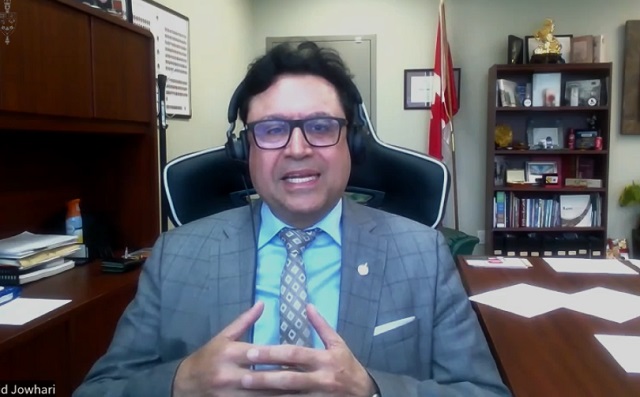
 Addictions1 day ago
Addictions1 day agoLiberals shut down motion to disclose pharma payments for Trudeau’s ‘safe supply’ drug program
-
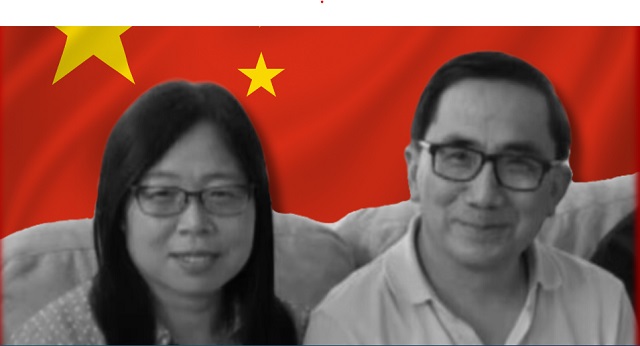
 espionage20 hours ago
espionage20 hours agoThe Scientists Who Came in From the Cold: Canada’s National Microbiology Laboratory Scandal, Part I
-

 Energy17 hours ago
Energy17 hours agoTech giants’ self-made AI energy crisis
-

 Energy2 days ago
Energy2 days agoNew Report Reveals Just How Energy Rich America Really Is
-
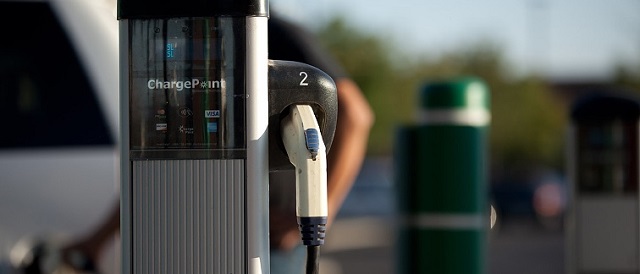
 Automotive2 days ago
Automotive2 days agoBiden’s Climate Agenda Is Running Headfirst Into A Wall Of His Own Making
-

 Economy2 days ago
Economy2 days agoFeds spend $3 million to fly 182 politicians and bureaucrats to climate conference
-
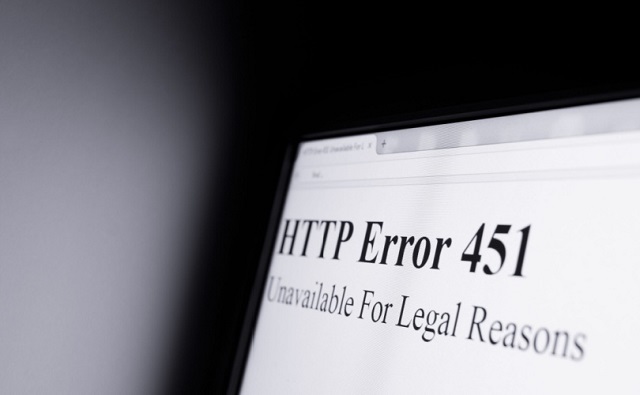
 National19 hours ago
National19 hours agoTrudeau’s internet censorship Bill C-11 will not be implemented until late 2025
-

 Frontier Centre for Public Policy14 hours ago
Frontier Centre for Public Policy14 hours agoThe PM as Leaf’s coach





